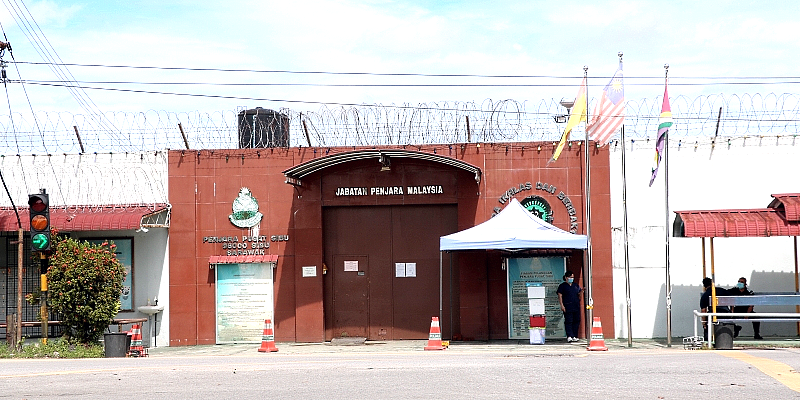Due to the high occurrence of repeat offenses, the length of a jail sentence will therefore not solve our crime problem…save for life imprisonment!
Minister in the prime minister’s department Wan Junaidi said the government planned to abolish life imprisonment, arguing that the proposal was made by a special committee studying alternative punishments in lieu of mandatory death, whose chairman is former Chief Justice Tun Richard Malanjum.
The news came as an additional shocker to the Malaysian society after the cabinet had agreed to abolish mandatory death penalty.
The minister said abolishing life imprisonment was the government’s plan and as such no studies need to be conducted, meaning, the committee’s proposal to abolish life imprisonment has been accepted by the government in principle.
Former Attorney-General Abu Talib Othman has also proposed to abolish life imprisonment to be replaced by more appropriate sentences. He feels that life imprisonment is no more suitable today and is violating human rights.
He even says life imprisonment is more cruel than mandatory death because the convict will remain behind bars for the rest of his life unless he gets a royal pardon from the King or sultan.
Put it this way: if we were to take into consideration the human rights of a capital convict who has now escaped death, what about the rights of the victims and their families?
If like Abu Talib has said life imprisonment is too cruel, then a 10-year or 15-year jail sentence is also quite cruel, especially an unjust jail sentence. Isn’t it?

Sin Chew Daily ran a survey last week on the cabinet’s decision to abolish mandatory death penalty with very polarized results.
Among of the reasons cited by the proponents is that mandatory death can be replaced with life imprisonment because they believe this is good enough to serve as a deterrent for potential criminals.
The thing is, even life imprisonment is also going to be abolished by the government now, and this brings us back to the old question: where’s the human rights of the victims?
According to Wan Junaidi, after mandatory death is abolished, the alternative sentence will be at the discretion of the court and if it is not for life imprisonment, then it could be a 15- or 20-year jail sentence.
If the convict is well behaved and gets the royal pardon, then a criminal who is supposed to be hanged can walk out of the prison in probably less than ten years!
These people on parole may just be in their thirties or forties when they get out of prison, and chances of them committing the crime again is always there!
As there is always this likelihood for a released prisoner to commit crime and be sent back to jail again, the length of jail sentence will therefore not solve our crime problem, save for life imprisonment.
In the United States, convicts are usually given psychological rehabilitation therapy while serving their jail sentences in a bid to reduce the probability of them committing crime again upon release. But even the US is not doing enough to stop repeat crime, let alone Malaysia!
Meanwhile in Taiwan, about 45-55% of new criminals each year are actually repeat offenders even though convicts are given religious and psychological counseling as well as skill training in prison. This is because the society will hardly accept ex-convicts and they have problem looking for a decent job.
ADVERTISEMENT
ADVERTISEMENT


































